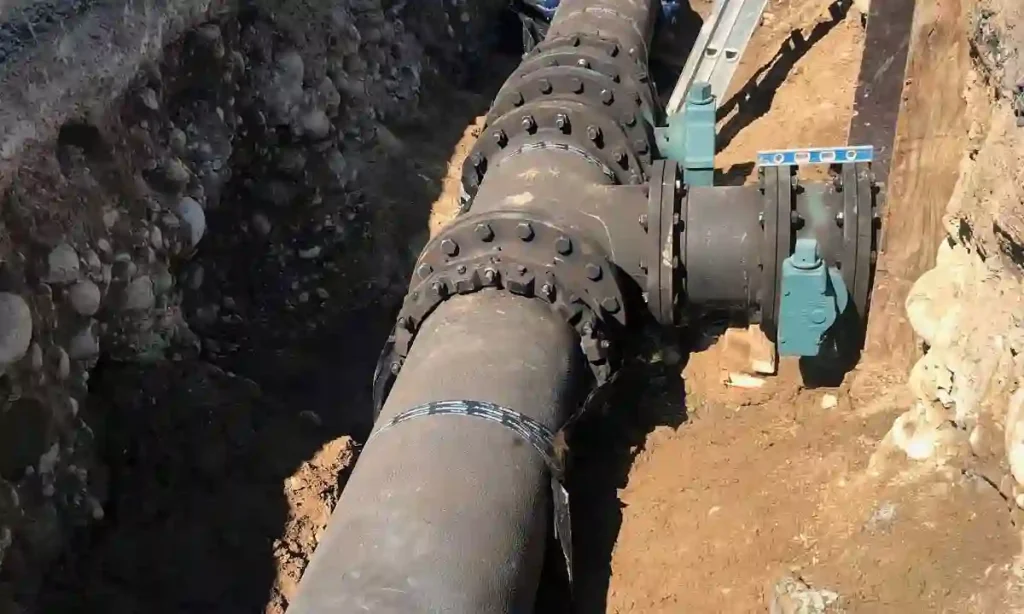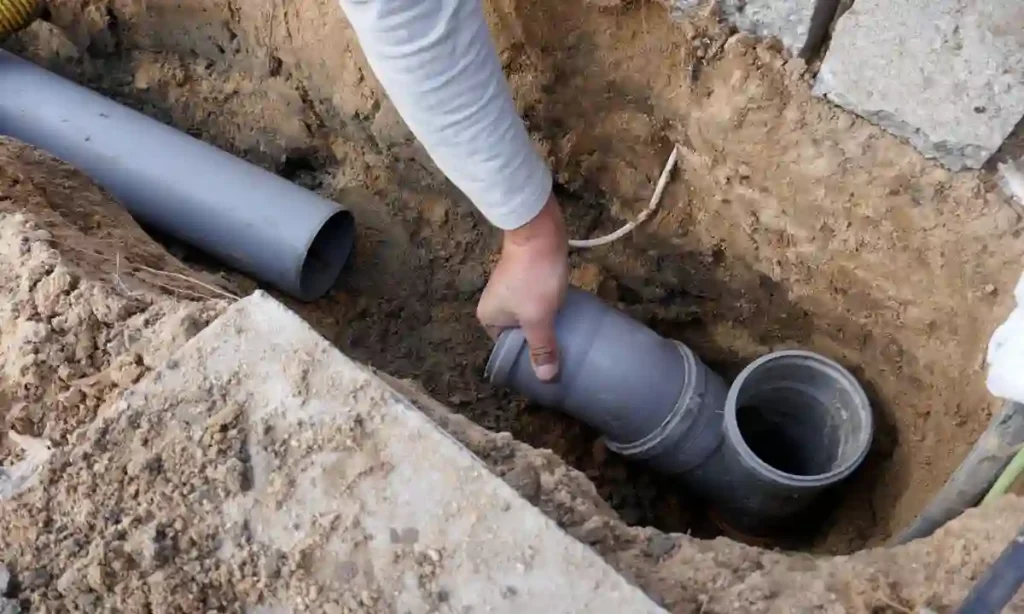The sewer line is an essential component of any residential or commercial property’s plumbing system. It carries waste and wastewater away from the premises, ensuring proper sanitation and hygiene. However, like any other infrastructure, sewer lines can experience issues over time, such as clogs, leaks, or damage. When faced with sewer line problems, property owners often find themselves at a crossroads: should they opt for repair or replacement? In this article, The Pro Plumbing will explore the factors to consider when making this decision, aiming to help you make the right choice for your specific situation.
When handling sewer line maintenance for Alhambra’s commercial properties, choosing between hydro-jetting and replacement is crucial. Hydro-jetting is effective for clearing blockages and buildup, but it may not fix structural issues. Replacement might be necessary for severely damaged pipes. Consider a professional assessment to make the right decision for your property’s sewer lines.

The Extent of Damage:
The severity of the sewer line damage is a crucial factor to consider. Minor issues like small cracks, clogs, or localized leaks can often be repaired without the need for a complete replacement. Professional plumbers can use various techniques, such as hydro-jetting, pipe lining, or spot repairs, to fix these problems efficiently. However, if the damage is extensive, such as large cracks, collapsed pipes, or a severely deteriorated system, replacement may be the more viable and cost-effective option in the long run.
Age of the Sewer Line:
Another crucial factor to consider is the age of the sewer line. Older properties may have sewer lines made of outdated materials like clay or cast iron, which are more prone to deterioration and damage. If your sewer line is approaching the end of its lifespan, it may be more practical to opt for a replacement rather than frequent repairs. Newer materials like PVC or ABS pipes offer improved durability and longevity, potentially reducing the need for future repairs.
Cost Considerations:
Cost is an essential aspect to weigh when deciding between repair and replacement. In general, repairs tend to be more affordable upfront, especially for minor issues. However, it is crucial to consider the long-term cost implications. If you find yourself frequently repairing the sewer line due to recurring problems, the cumulative expenses can quickly add up. In such cases, a replacement may be more cost-effective over time, as it provides a fresh start with a new, reliable sewer line that requires minimal maintenance.
Future Property Plans:
Consider your future plans for the property. If you are planning to sell in the near future, a sewer line replacement can increase the property’s value and attract potential buyers. Prospective homeowners often prefer a property with a recently replaced sewer line, as it provides peace of mind and eliminates the immediate need for repairs. On the other hand, if you intend to stay in the property for an extended period, repairing the sewer line may be a more practical and budget-friendly option.
Environmental Impact:
Environmental considerations are increasingly important in decision-making processes. When evaluating sewer line repair versus replacement, it’s worth noting that repair generally has a lower environmental impact. Repairing existing infrastructure requires fewer materials and resources compared to a complete replacement. By opting for repair whenever feasible, you contribute to sustainable practices and minimize waste generation. Consider asking for demo or previous projects by the professionals before choosing the right professional sewer line repair services
Time Constraints:
The urgency of the situation is another factor to take into account. If you are experiencing a sewer line issue that requires immediate attention, such as a complete blockage or a major leak, repair might be the quicker solution. Repairs can often be completed within a few hours or days, depending on the extent of the problem. Conversely, a complete replacement usually takes more time, involving excavation, pipe removal, and installation, which can disrupt your property for several days or even weeks.
Potential Hidden Issues:
Sometimes, sewer line issues can be indicative of underlying problems that are not immediately visible. For instance, recurring clogs or leaks may be a sign of a more extensive problem, such as tree root intrusion or a misaligned or deteriorating sewer line. In such cases, a thorough inspection by a professional plumber using technologies like video camera inspections can help identify the root cause of the issue. If hidden issues are discovered, a replacement might be a more suitable option to address the underlying problems comprehensively and avoid future repairs.
Warranty and Insurance Coverage:
Review your warranty and insurance coverage to determine what is covered in the event of sewer line damage or failure. Some warranties or insurance policies may cover the cost of repairs or replacements, while others may have specific limitations or exclusions. Understanding the terms of your coverage can help you make an informed decision about whether repair or replacement is the most financially viable option for you.
Disruption to Property and Landscape:
Consider the potential disruption that sewer line maintenance or replacement may cause to your property and landscape. Repair work can typically be completed with minimal excavation, causing less disturbance to your yard and surrounding areas. On the other hand, sewer line replacement often requires extensive digging and excavation, which can result in more significant disruption and damage to your property. If preserving your landscape or minimizing property disruption is a priority, repair may be the more favorable choice.
Professional Advice and Expertise:
When faced with sewer line issues, it’s advisable to consult with a professional plumber or sewer line specialist. They have the expertise and experience to assess the condition of your sewer line accurately and provide informed recommendations. A professional evaluation can help you understand the specific requirements of your situation, including the potential benefits and drawbacks of repair and replacement options. Their guidance will assist you in making a well-informed decision tailored to your unique circumstances.

FAQS:
When should I consider sewer line repair instead of replacement?
Sewer line repair is generally a suitable option for minor issues such as small cracks, localized leaks, or clogs. If the damage is not extensive and the overall condition of the sewer line is still good, repairs can be cost-effective and provide a reliable solution. It is advisable to consult with a professional plumber to assess the specific situation and determine if repair is the appropriate course of action.
How do I decide between repair and replacement if the damage is not severe?
If the damage to your sewer line is not severe, several factors can help guide your decision. Consider the age of the sewer line, the cost implications of repairs versus replacement in the long run, your future plans for the property, and the environmental impact. Additionally, consult with a professional plumber to evaluate the extent of the damage, potential hidden issues, and their expert opinion on the most suitable course of action.
Will repairing the sewer line solve all my plumbing issues?
Repairing the sewer line can address specific problems such as leaks, clogs, or minor cracks. However, it’s essential to note that there may be other plumbing issues that are unrelated to the sewer line. If you continue to experience plumbing problems after repairing the sewer line, it is advisable to have a comprehensive inspection conducted to identify any additional issues that may require attention.
Can I claim insurance or warranty for sewer line repair or replacement?
Insurance coverage and warranty terms vary, so it’s essential to review your policy or warranty to determine what is covered for sewer line repairs or replacements. Some policies may cover certain types of damage or specific causes, while others may have exclusions or limitations. Review your coverage and consult with your insurance provider or warranty provider to understand the extent of coverage for sewer line issues.
Conclusion:
In conclusion, when confronted with sewer line issues, making the right decision between repair and replacement requires careful consideration of various factors. Assessing the extent of damage, the age of the sewer line, and the cost implications of repairs versus replacement are crucial steps. Additionally, taking into account future property plans, environmental impact, time constraints, potential hidden issues, warranty coverage, and seeking professional advice can provide valuable insights for decision-making.
It is essential to strike a balance between immediate needs and long-term considerations. While repairs may be more affordable upfront, they may not be a sustainable solution if the sewer line has extensive damage or is nearing the end of its lifespan. In such cases, replacement offers a fresh start with a new, reliable sewer line that minimizes the need for future repairs.

